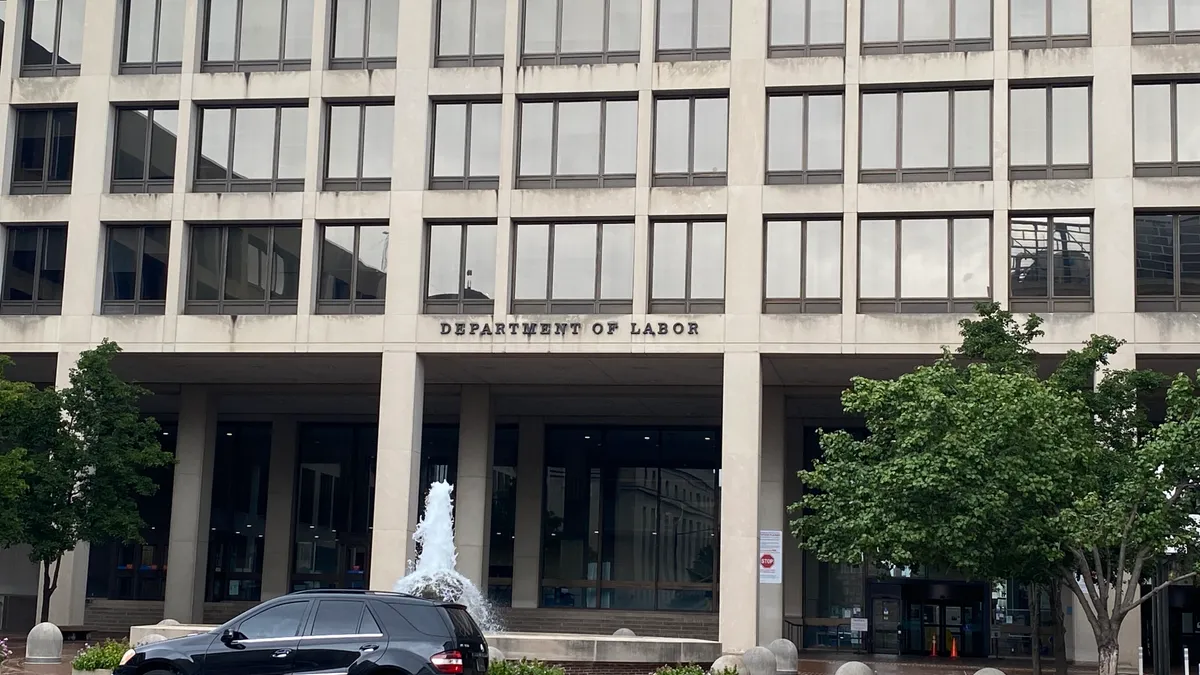The benefits space has grown to encompass many aspects of workers’ lives in recent years, from family planning and mental health to financial planning and fitness.
One relatively new offering on the scene is legal benefits, which connect employees with legal services that can help them with a range of life stages. Worker demand for legal benefits has more than doubled in the wake of the pandemic, according to MetLife, but employers are struggling to keep up — less than one-third currently offer legal benefits.
“In 2020, in the thick of the pandemic, wills and estate plans became more top of mind for people,” Ingrid Tolentino, CEO of Metlife Legal Plans, told HR Dive. “That naturally led to a conversation around how legal plans can help employees with estate-planning to help protect their families and protect their loved ones.”
Additionally, talent granted remote work privileges were fleeing from urban life and expensive housing, creating a greater need for advice related to real estate.
“If you were trying to get out of a lease to maybe leave a big city — or were looking to rent in more suburban or rural areas — all manner of workers would benefit from … having legal advice,” Tolentino said.
Why else are legal benefits important?
Benefits such as accident or pet insurance are intuitive, Tolentino said. But when she’s speaking to employers and employees about legal plans, both groups still question the purpose. Tolentino points them toward the need for a will; data shows the majority of Americans don’t have an estate plan.
“For some reason, there’s this inertia around people getting it done. People always say, ‘Oh, I know I need one.’ They just don’t get around to doing it,” Tolentino explained.
Her theory on people’s reluctance to create wills? The time commitment, compounded with the fear of death. It’s also a time commitment — and a lot of paperwork.
“‘I have to make an appointment with an attorney. I have to have a discussion with my partner. What if I don’t want them to get our kid or the dog? Or I don't want his sister to be the one who takes charge of the kids should something happen?’ These [are] conversations that people would rather just put off,” Tolentino said.
If you’re uncomfortable with your mortality, she added, “You can easily let that fall to the bottom of the pile.”
HR can ease that discomfort and procrastination by championing a legal plan. Tolentino said she has seen people benefit immensely from the option to complete a will digitally.
“You can do it from beginning to end, and you’ll have a fully executed will,” she said. The last step would be to get it notarized. “We're averaging 20,000 to 35,000 people a month completing wills in that way, because we removed that extra step you have to take with consulting an attorney,” she said. “It’s meeting people where they are.”
It’s not just wills and estate-planning
Legal plans also have utility that doesn’t require grappling with mortality.
Buying a house and starting a family are the happier reasons to have a legal plan, Tolentino explained. She observed that LGBTQ+ workers specifically rely heavily on reproductive services, including the use of surrogates. This family planning involves “a whole stream of work … that has legal implications,” she said. “New York has different laws than Utah, than North Dakota.”
Legal plans can even help resolve traffic tickets. “We get upwards of 95% of tickets dismissed or no [license] points [added] because the member had a plan and they used an attorney to represent them in court,” Tolentino said.
Plus, productivity is at stake
Legal benefits can also be a tool to retain Gen Xers. “The largest-growing population in the workplace right now is that ‘Sandwich Generation,’” Tolentino said. “We have grown-ups … in the workforce who are taking care of grown children and often aging parents — whether it’s their own parents or their in-laws — and [they’re] navigating the healthcare system, Social Security, Medicaid.” These stressors can be “distracting” for employees, she said.
MetLife’s research indicated that workers who have access to legal plans are 20% more likely to say they feel “mentally healthy.” Likewise, that group is 12% more likely to say they are more productive at work.
At the end of the day, a worker can’t extricate their personhood from their professional self.
Legally-tinged issues are “absolutely impacting productivity in the workplace, because you’re a whole person. You bring all [of] yourself to work and so your needs manifest themselves in the workplace,” Tolentino said. “It’s really hard to separate them.”















